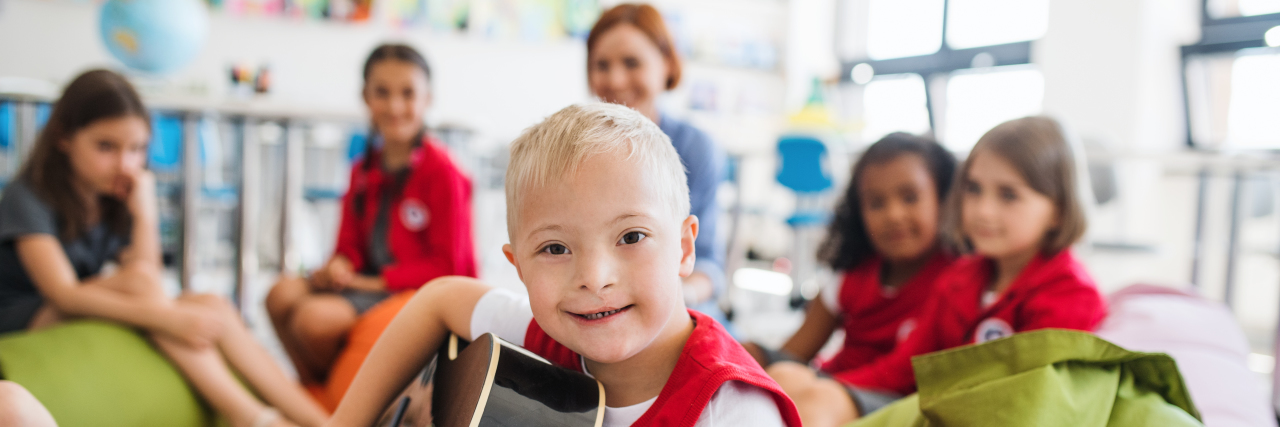I am a special education teacher. Each day I awake to my own theme song; it gets my blood pumping to begin my day. A peruse of my closet almost always ends up in me choosing my special red cape to accent my outfit of the day. I might pair it with the Superman shirt I got with the big S emblem on the front, that I know really stands for special educator, and possibly those really special black sequined pants hanging so perfectly polished.
As I drive my DeLorean to school, I run through the checklist of what the day’s special lessons may entail: Stephen King coming in to kick off our ELA unit on horror, a midday trip to Boeing for a quick demonstration on airplane wing design to complement our math lesson about angles, comparing water samples from the waterfall tour we did last week for science, and lastly a close examination of cave drawings that I chiseled by hand as a closure to our early humans unit study in history.
Pulling into my special parking spot, the one right next to the visitor’s spot, I notice some of my students waiting on the bus. My students are easily spotted; they are the ones wearing the special hats that only special students may wear, the ones rimmed with diamonds and rubies. As I enter the building, I give a nod to those meager general education teachers who should feel so lucky to be graced with my special presence. What a pity to spend a career teaching such general kids. I take a moment to reflect on how lucky I am to be one of the special ones.
While I wish I could look great in special black sequined pants and have guest speakers as distinguished and special as Stephen King, the reality is that there truly is nothing special about being a special education teacher. Like many of my colleagues, I slump out of bed, throw on the least wrinkled pants I can find, and ignore my change oil light as I rush to school hoping I turned in my lesson plans this week. In those plans, I will have some awesome activities for my students that will foster a deep love of learning, and also some less than thrilling activities that will help reinforce those pesky tested standards.
Pulling into the last spot in the parking lot, I see a bus full of kids, none more special than the other, and as I enter the building I smile at all the amazing teachers I work with across so many different disciplines. However, I do often take a moment to reflect on how lucky I am to work with such dedicated colleagues.
The importance of language used to describe groups of people is at the height of discussion in our society. But not much attention is being given to the fact that we have a group of educators and students being labeled as superior. A word that, according to Merriam-Webster, has one meaning of, “distinguished by some unusual quality, especially being in some way superior.” What makes my job more special than my colleagues? What makes my students more special than their peers? Aren’t we all just teachers and learners?
I get it. What I do as a teacher looks a bit different than what other teachers may do, but I don’t provide special education, I provide accessible education. I help my students gain access to the curriculum and all that school has to offer. My students aren’t “special ed kids;” they are just kids. They are just kids looking for the same opportunities as their peers who don’t have disabilities. They aren’t looking for anything special, nor do they need anything special. They just need access. They just need the tools to gain access. Access to school and all its offerings should not be seen as special or extraordinary, it is a basic student need and right that every educator should strive to meet.
It is time to reconsider the language we use to describe the education of students with disabilities. While in the future I hope that schools and educators provide such a seamless array of support and differentiation that there is only education, not special or general, for now, our language matters. Let’s reframe the stigma and preconception of the education of students with disabilities as being something extraordinary and special. Accessible education is nothing special. Accessible education is the right of all students.
Getty image by Halfpoint.

